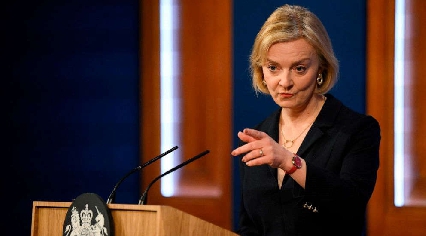
British Prime Minister Liz Truss has announced her resignation following weeks of criticism from her opponents and members of her own Conservative Party, and the resignation of two of her top cabinet picks.
The number of Conservatives who publicly called for the UK prime minister to quit doubled to a dozen within the space of a couple of hours on Thursday morning.
Truss had entered office promising to cut taxes and kickstart the country's economic growth program. This sent shockwaves through the markets, plummeted in value of the British pound, and divided her Conservative Party just six weeks after she was appointed.
Speaking in Downing Street, she said: “This morning I met the chairman of the 1922 Committee, Sir Graham Brady.
“We’ve agreed that there will be a leadership election to be completed within the next week.
“This will ensure that we remain on a path to deliver our fiscal plan and maintain our country’s economic stability and national security.
“I will remain as prime minister until a successor has been chosen.
“Thank you.”
Facing mounting pressure from all sides of parliament over her economic policies, Truss sacked Kwasi Kwarteng, the Chancellor of the Exchequer (finance minister).
Soon after, Truss reversed her economic policies which she had touted as "pro-growth."
The decision to step down makes her the UK's shortest-serving premier after being in the role for just 44 days, a record previously held by George Canning, who died of tuberculosis in 1827 after just four months on the job.


